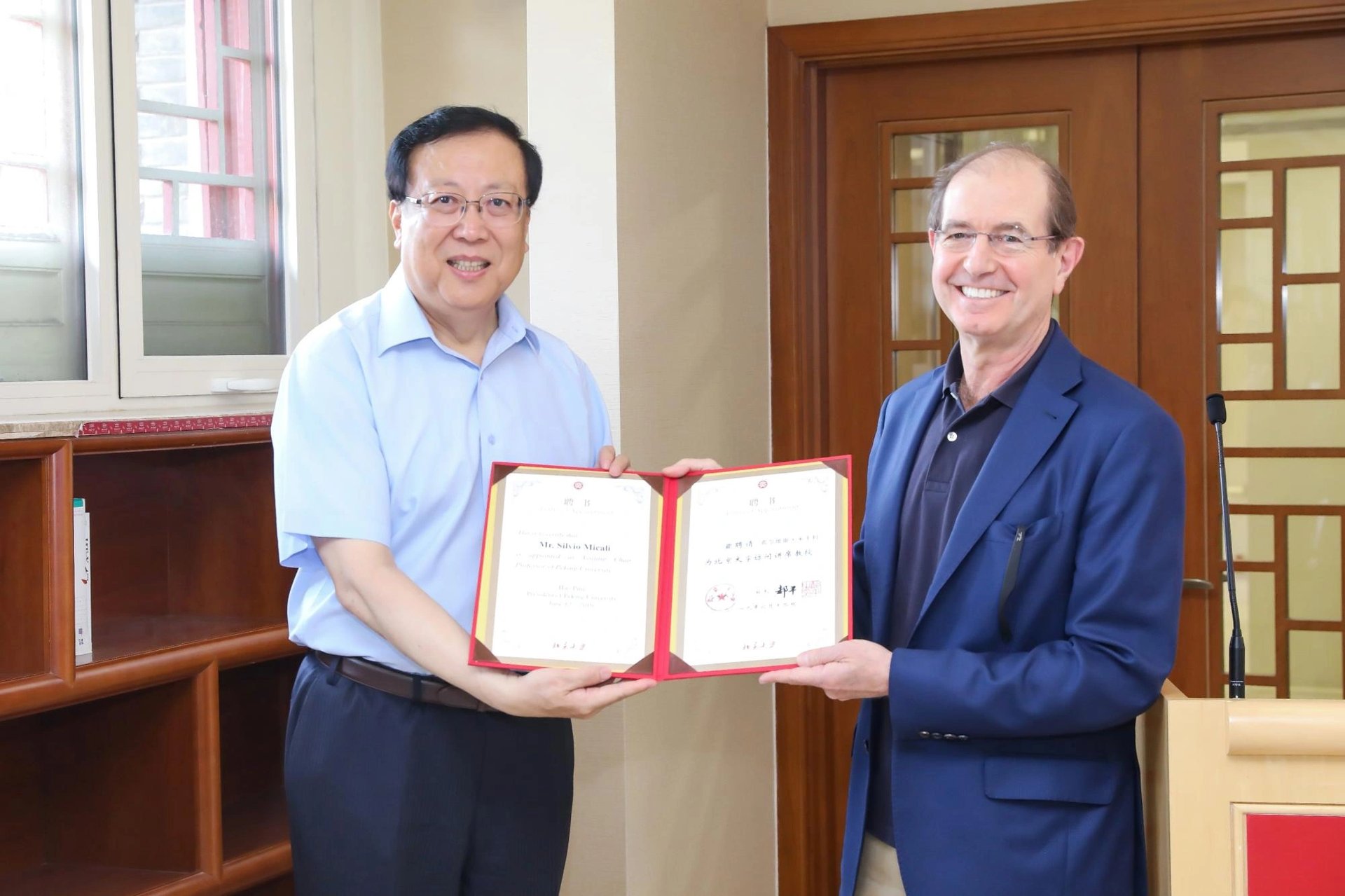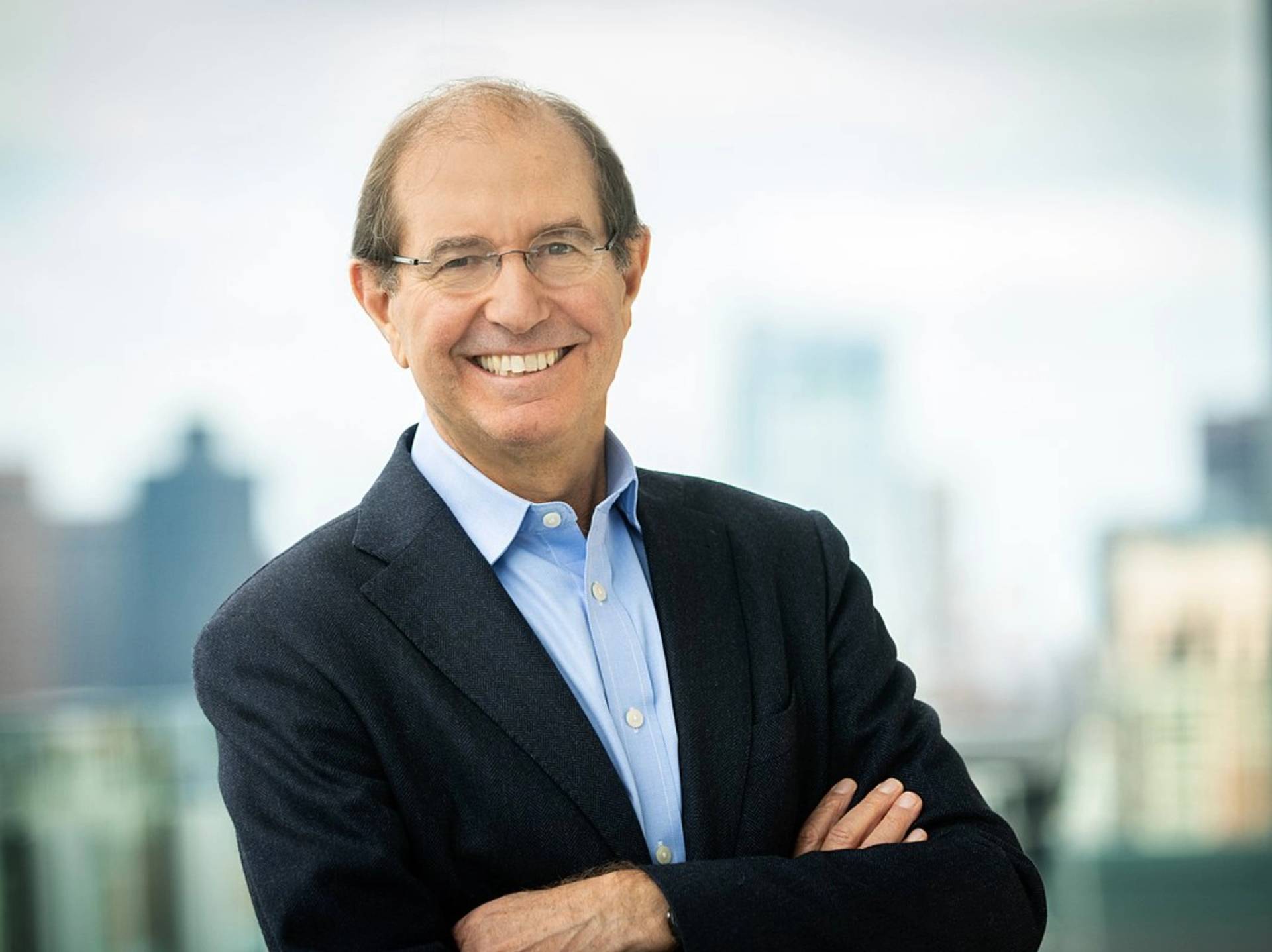위키 구독하기
Share wiki
Bookmark
Silvio Micali
0%
Silvio Micali
실비오 미칼리는 Algorand 암호화폐 프로토콜의 공동 창립자입니다. 그는 컴퓨터 과학자이자 매사추세츠 공과대학교의 교수이며 Algorand 프로토콜에 대한 암호화 및 정보 보안 연구로 가장 잘 알려져 있습니다. 2012년에는 컴퓨터 과학 분야에서 가장 권위 있는 상인 튜링상을 수상했습니다. 그는 국립 과학 아카데미, 국립 공학 아카데미, 미국 예술 과학 아카데미 및 아카데미아 데이 린체이의 회원입니다.[1]
경력
미칼리는 1983년부터 MIT의 전기 공학 및 컴퓨터 과학 부서에 소속되어 있습니다. 그는 암호화, 블록체인 기술, 특히 영지식 증명, 의사 난수 생성, 보안 프로토콜 및 메커니즘 설계 분야의 선도적인 전문가입니다. 그는 확률적 암호화, 영지식 증명, 검증 가능한 난수 함수 및 현대 암호화의 기본으로 간주되는 여러 프로토콜을 공동 발명한 것으로 인정받고 있습니다.[1]
블록체인에서 저를 정말 매료시킨 것은 세 가지 분야의 교차점이었습니다. 하나는 암호화이고, 하나는 분산 컴퓨팅이고 (...) 세 번째 분야는 경제적 인센티브입니다 (...) . 저는 블록체인과 이 세 가지의 교차점이 제 전문 지식에 이상적이라고 느꼈고, 이 벤처에 모든 것을 던져 Algorand가 새로운 방식을 찾았다는 것을 알게 되었습니다.
2001년에는 CIA의 벤처 부문인 In-Q-Tel이 투자한 회사인 CoreStreet Ltd를 공동 설립했습니다. 나중에 이 회사는 분산 인프라에서 자격 증명을 확인할 수 있는 기술에 대한 특허를 획득했습니다. 이것은 회사의 15번째 특허였으며, 그 대부분은 실비오 자신이 개발했습니다. 미칼리는 또한 소액 결제를 위한 암호화 시스템인 Peppercoin을 설립했습니다. 이 시스템은 2002년 RSA 컨퍼런스에서 처음 발표되었고, 2007년에 인수되었습니다.[5]
미칼리는 또한 소액 결제를 위한 암호화 시스템인 Peppercoin을 설립했습니다. 이 시스템은 2002년 RSA 컨퍼런스에서 처음 발표되었고, 2007년에 인수되었습니다.[6]
Algorand
2017년 실비오 미칼리는 PPoS(Pure Proof of Stake)라는 알고리즘을 기반으로 하는 블록체인 프로토콜인 Algorand를 설립했습니다. 이는 블록을 검증하는 데 더 적은 에너지를 사용하므로 Bitcoin과 같은 다른 블록체인보다 더 친환경적인 프로토콜을 목표로 합니다.[7]
“비트코인은 작은 국가만큼의 전기를 흡수하고 있으며, 우리는 대략 10가구 정도의 전기를 소비할 것입니다. [Algorand는 트랜잭션 블록을 검증하기 위해 소위 순수 지분 증명 방식을 사용하는 반면, 비트코인은 훨씬 더 에너지 집약적인 작업 증명 시스템을 사용합니다.]”
미칼리는 비트코인의 정신과 아이디어를 유지하면서도 “기술적으로 건전한 방식”으로 무언가를 설계하는 것을 목표로 했습니다. Algorand를 통해 PPoS를 통해 블록체인 지속 가능성을 달성할 수 있으며 동시에 확장성, 보안 및 분산화라는 블록체인 트릴레마를 해결할 수 있습니다. 노드를 무작위로 선택하여 블록을 생성하고 보상을 얻으므로 중앙 집중화 및 조작에 강합니다. 이 플랫폼은 초당 많은 수의 트랜잭션을 지원하므로 확장 가능합니다. 또한 스마트 계약에 대한 기본 지원이 내장되어 있어 분산형 애플리케이션을 만들 수 있습니다.[8]
수상 및 영예
미칼리는 경력 전반에 걸쳐 이론 컴퓨터 과학 및 암호화 분야에서 획기적인 업적을 인정받았습니다. 그는 1993년 이론 컴퓨터 과학 분야의 괴델상과 컴퓨터 과학 분야의 튜링상을 포함하여 수많은 상과 영예를 받았습니다. 그는 또한 2004년 수학 분야에서 RSA 우수상을 수상했습니다.[3] 기타 업적은 다음과 같습니다.
- 미국 예술 과학 아카데미 회원 (2003년 1월)
- 펜실베이니아 대학교 Rademacher 강사 (2005년 1월)
- UC 버클리 컴퓨터 과학 분야의 뛰어난 동문상 (2006년 1월)
- 국립 과학 아카데미 회원 (2007년 1월)
- 국립 공학 아카데미 회원 (2007년 1월)
- 국제 암호 연구 협회 회원 (2007년 1월)
- 칭화대학교 석좌 교수 (2007년 1월)
- 아카데미아 데이 린체이의 Socio Corrispondente (2017년 1월)

교육 및 개인 생활
실비오 미칼리는 1954년 시칠리아 팔레르모에서 태어났습니다. 그는 로마 라 사피엔자 대학교에서 수학 학위를 받았고 캘리포니아 대학교 버클리에서 컴퓨터 과학 박사 학위를 받았습니다. 이후 1982년부터 1983년까지 토론토 대학교에서 박사후 연구원으로 교육을 계속했습니다. 미칼리의 연구는 암호화 및 정보 보안의 이론적 기초에 중점을 둡니다.[2]
잘못된 내용이 있나요?
